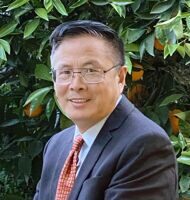In accordance with the Law of the Russian Federation on the Mass Media, the Federal Service for Supervision of Communications, Information Technology and Mass Communications (Roskomnadzor) on September 22, 2020, the web-based publication - The peer-reviewed scientific online journal "Ecopoiesis: Eco-Human Theory and Practice" was registered (registration number El No. FS77-79134).
“Ecopoiesis: Eco-Human Theory and Practice” is the international multidisciplinary Journal focused on building an eco-human paradigm, disseminating eco-human knowledge and technology based on the alliance of ecology, humanities and the arts. Our journal aims to be a vibrant forum of theories and practices aimed at harmonizing the relations of mankind and the natural world in the interests of sustainable development, the creation of Eco-Humanity as a new community of human beings and more-than-human world. The human being is an ecological being, not separate from the world. The Ecopoiesis journal is based on that premise and aims to develop a body of theory and practice within that framework.
The Journal promotes dialogue and cooperation between ecologists, philosophers, doctors, educators, psychologists, artists, musicians, designers, social activists, business representatives in the name of eco-human values, human health and well-being, in close connection with concern for the environment. The Journal supports the development and implementation of new environmentally-friendly concepts, technologies and practices in the various fields of health and public life, education and social work.
One of the priority tasks of the Journal is to demonstrate and support the significant role of the arts in their alliance with ecology and the humanities for the restoration and development of constructive relations with nature, raising environmental awareness and promoting nature-friendly lifestyles.
The Journal publishes articles describing new eco-human concepts and practices, technologies and applied research data at the intersection of humanities, ecology and the arts, as well as interviews and conference reports related to the emerging eco-human field. It encourages artwork, music and other creative products related to eco-human practices and the new global community of Eco-Humanity.


